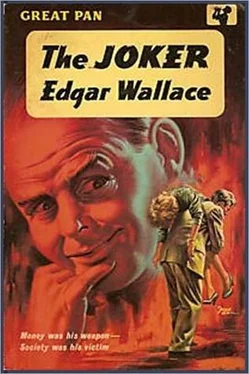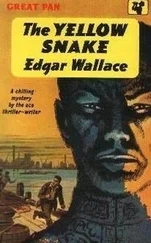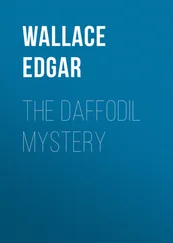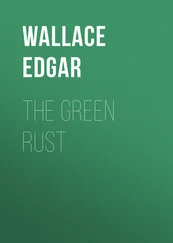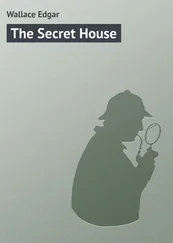Edgar Wallace - The Joker
Здесь есть возможность читать онлайн «Edgar Wallace - The Joker» весь текст электронной книги совершенно бесплатно (целиком полную версию без сокращений). В некоторых случаях можно слушать аудио, скачать через торрент в формате fb2 и присутствует краткое содержание. Год выпуска: 0101, Жанр: Старинная литература, на английском языке. Описание произведения, (предисловие) а так же отзывы посетителей доступны на портале библиотеки ЛибКат.
- Название:The Joker
- Автор:
- Жанр:
- Год:0101
- ISBN:нет данных
- Рейтинг книги:5 / 5. Голосов: 1
-
Избранное:Добавить в избранное
- Отзывы:
-
Ваша оценка:
- 100
- 1
- 2
- 3
- 4
- 5
The Joker: краткое содержание, описание и аннотация
Предлагаем к чтению аннотацию, описание, краткое содержание или предисловие (зависит от того, что написал сам автор книги «The Joker»). Если вы не нашли необходимую информацию о книге — напишите в комментариях, мы постараемся отыскать её.
The Joker — читать онлайн бесплатно полную книгу (весь текст) целиком
Ниже представлен текст книги, разбитый по страницам. Система сохранения места последней прочитанной страницы, позволяет с удобством читать онлайн бесплатно книгу «The Joker», без необходимости каждый раз заново искать на чём Вы остановились. Поставьте закладку, и сможете в любой момент перейти на страницу, на которой закончили чтение.
Интервал:
Закладка:
Elk stared at him.
‘You’re talking foolish,’ he said.
CHAPTER 11
AILEEN RIVERS had made one attempt to see her relative. She called up her uncle on the telephone and asked if she might call.
‘Why?’ was the uncompromising question.
Only a very pressing cause would have induced the girl to make the attempt—a fact which she conveyed to Ingle in the next sentence.
‘I’ve had a big bill sent to me for the redecoration of your flat. You remember that you wished this done. The decorators hold me responsible—’
‘Send the bill to me; I’ll settle it,’ he interrupted.
‘I’m not sure that all the items are exact,’ she began.
‘It doesn’t matter,’ he broke in again. ‘Send the bill: I’ll settle it. Good morning.’
She hung up with a little smile, relieved of the necessity for another interview.
There were times when Aileen Rivers was extremely grateful that no drop of Arthur Ingle’s blood ran in her veins.
He had married her mother’s first cousin, and the avuncular relationship was largely a complimentary one. She felt the need of emphasizing this fact upon Jim Carlton when he called that night—a very welcome visit, though he made it clear to her that the pleasure of seeing her again was not his sole object.
He had come to make inquiries which were a little inconsequent, she thought, about Mrs Gibbins. He seemed particularly anxious to know something about her nature, her qualities as a worker, and her willingness to undertake tasks which are as a rule outside the duties of a charwoman.
She answered every question carefully and exactly, and when her examination had been completed: ‘I won’t ask you why you want to know all this,’ she said, because I am sure that you must have a very good reason for asking. But I thought the case was finished?’
He shook his head. ‘No murder is finished until the assassin is caught,’ he said simply.
‘It was murder?’
‘I think so—Elk doesn’t. Even the doctors at the inquest disagreed. There is just a remote possibility that it may have been an accident.’ And then blandly: ‘How is your attentive fellow-boarder?’
‘Oh, Mr Brown?’ she said with a smile. ‘I don’t know what has happened, but since I spoke to you I’ve hardly seen him. Yes, he is still staying at the house.’
His visit was disappointingly short, though in reality she should not have been disappointed, because she had brought home a lot of work from the office—Mr Stebbings was preparing his annual audit, and she had enough to keep her occupied till midnight. Yet she experienced a little twinge of unhappiness when Jim Carlton took an abrupt adieu.
Though in no mood for work, she sat at her table until one o’clock, then, putting down her pen, opened the window and leaned out, inhaling the cold night air. The sky was clear and frosty; there was not a suspicion of the fog which had been predicted by the evening newspapers; and Coram Street was singularly peaceful and soothing. From time to time there came a distant whirr of wheels as cars and taxis passed along Theobald’s Road, but this was the only jar in the harmony of silence. It was one of London’s quiet nights.
She looked up and down the street-the deserted pavement was very inviting. She was stiff and cramped through sitting too long in one position, and a quarter of an hour’s walk was not only desirable, but necessary, she decided. Putting on her coat, she opened the door other room and crept silently down the stairs, not wishing to disturb the other inmates of the house.
At the foot of the first flight of stairs she had a surprise.
The door of the attentive boarder was wide open, and when she came abreast of it she saw him sitting in an armchair, a pipe gripped between his teeth, his hands clasped unromantically across his front and he was nodding sleepily. But she made sufficient noise to rouse him, and suddenly he sat up.
‘Hullo!’ he croaked, in the manner of one awaking from slumber. ‘Are you going out?’
The impertinence of the man took her breath away.
‘I thought of going for a stroll too,’ he said, rising laboriously. ‘I’m not getting enough exercise.’
‘I’m going to post a letter, that is all,’ she said, and had the humiliation of making a pretence to drop an imaginary letter into the pillar-box under his watchful eye.
She brushed past him as he stood in the doorway, blowing great clouds of smoke from his pipe, and almost ran up the stairs, angry with herself that she could allow so insignificant a thing to irritate her.
She did not see the man at breakfast, but as she walked up the steps to the office, she happened to glance round and, to her annoyance, saw him lounging on the corner of the square, apparently interested in nothing but the architecture of the fine old Queen Anne mansion which formed the corner block.
This day was to prove for Aileen Rivers something of an emotional strain. She was clearing up her desk preparatory to leaving the office when Mr Stebbings’s bell rang. She went in with her notebook and pencil.
‘No, no, no letter; I just have a curious request,’ said Mr Stebbings, looking past her. ‘A very curious and yet a very natural request. An old client of mine…his secretary has a sore throat or something. He wanted to know if you’d go round after dinner and take a few letters.’
‘Why certainly, Mr Stebbings,’ she said, surprised that he should be so apologetic.
‘He is not a client of mine now, as I think I’ve told you before,’ the stout Mr Stebbings went on, addressing the chandelier. ‘And I don’t know that I should wish for him to be a client either. Only—’
‘Mr Harlow?’ she gasped, and he brought his gaze down to her level.
‘Yes, Mr Harlow, 704 Park Lane. Do you mind?’
She shook her head.
‘No,’ she said. She had a struggle before she could agree. ‘Why, of course I’ll go. At what time?’
‘He suggested nine. I said that was rather late, but he told me that he had a dinner engagement. He was most anxious,’ said Mr Stebbings, his eyes returning to the Adam ceiling, ‘that this matter should be kept as quiet as possible.’
‘What matter?’ she asked wonderingly.
‘I don’t know’—Mr Stebbings could be exasperatingly vague—‘I rather fancy it may have been the contents of the letter; or, on the other hand, it may have been that he did not wish anybody to know that he had a letter of such importance as would justify the calling in of a special stenographer to deal with it. Naturally I told him he might rely on your discretion…thank you, that is all.’
She went back to her little room with the disquieting thought that she was committed to spend an hour alone with a man who on his last appearance had filled her with terror. She wondered whether she ought to tell Jim Carlton, and then she saw the absurdity of notifying to him every petty circumstance of her life, every coming and going. She knew he did not like Harlow; that he even suspected that splendid man of being responsible for the attack which had been made upon him in Long Acre; and she was the last to feed his prejudices. There were times when she allowed herself the disloyalty of thinking that Jim leaned a little towards sensationalism.
So she sent him no message, and at nine o’clock was ringing at the door of Mr Harlow’s house.
She had not seen him since he came to the flat. Once he had passed her in his car, but only Jim had recognised him.
Aileen was curious to discover whether she would recover that impression of power he had conveyed on the night of his call; whether the same thrill of fear would set her pulses beating faster-or whether on second view he would shrink to the proportions of someone who was just removed from the commonplace.
Читать дальшеИнтервал:
Закладка:
Похожие книги на «The Joker»
Представляем Вашему вниманию похожие книги на «The Joker» списком для выбора. Мы отобрали схожую по названию и смыслу литературу в надежде предоставить читателям больше вариантов отыскать новые, интересные, ещё непрочитанные произведения.
Обсуждение, отзывы о книге «The Joker» и просто собственные мнения читателей. Оставьте ваши комментарии, напишите, что Вы думаете о произведении, его смысле или главных героях. Укажите что конкретно понравилось, а что нет, и почему Вы так считаете.
